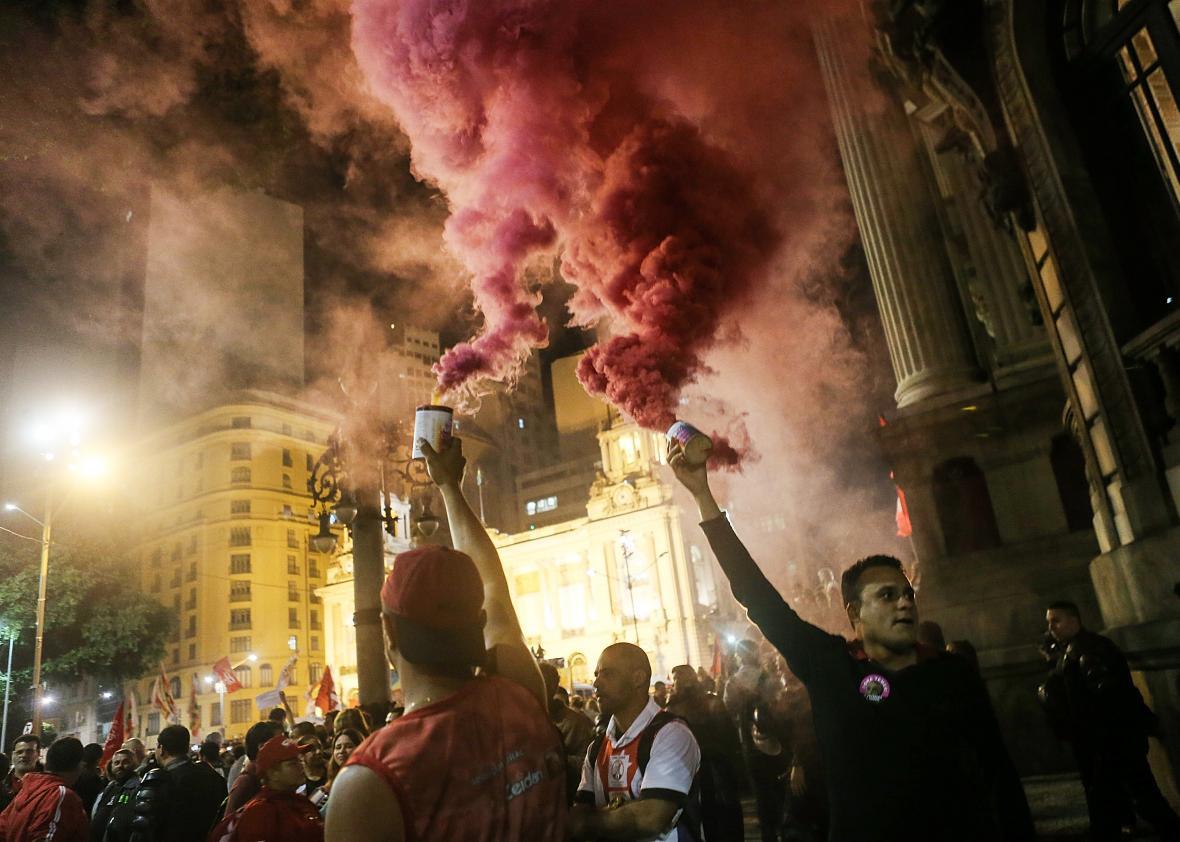The Rio Olympics are starting to look like a picnic scheduled too far in advance. The picnic basket—in this case, the actual facilities of the games—looks like it might turn out OK, even if organizers are cutting costs left and right. (No TVs in the Olympic Village apartments, for instance. Boo-hoo. That’s like leaving out the capers.)
But as the media hypes the minor faults of the games (fewer seats at some venues!), the broader context is that the picnic is happening in a thunderstorm. The state of Rio de Janeiro, which includes the city of Rio de Janeiro, is “nearing a social collapse,” state chief of staff Leonardo Espindola warned the country’s Supreme Court in April.
Public workers have been working with delayed salaries since the start of the year; teachers and other workers have been striking for months. The Rio state security budget has been cut by 30 percent this year. Hospitals are in crisis and have been running out of essential supplies like syringes. Welfare programs like the Bolsa Familia, a Lula-era project that gives cash transfers to low-income families that send their kids to school, are being suspended.
On Wednesday, the credit rating agency Fitch dropped the state’s rating by two notches. Standard & Poor’s did the same in May. Both agencies say the downgrade reflects concern about underfunded pensions.
The contrast between shoddy public services and frenzied World Cup and Olympics construction has rankled Cariocas for years. But the Olympics aren’t really to blame for Rio’s problems: The state has borne relatively little of the cost, according to the Brazil 2016 “Responsibility Matrix.” Brazil is experiencing a recession and a political crisis driven by a gargantuan corruption scandal involving the state oil company, Petrobras, and seemingly the entire federal legislature. The oil crash has hit Rio particularly hard. In 2012, more than half of the state’s investments were related to Petrobras. Today, oil royalties are half of what they were three years ago.
Obviously, the Olympic preparations have been impacted. The project to plant 500,000 mangrove trees in Barra de Tijuca, where a number of Olympic activities will occur, has been stalled due to the state’s financial problems, Bloomberg reports. The half-dozen major construction firms building most of the Olympic infrastructure are all involved in the Petrobras corruption investigation, and several Olympic projects, including the port renovation and the metro expansion, are being investigated by federal prosecutors.
But as far as all things Olympics, Brasilia mostly has the Rio region’s back. The country’s government is responsible for any debts the local organizing committee incurs. Brasilia, frightened by the prospect of a failed state under the Olympic spotlight, is considering giving the state of Rio an emergency loan. The Brazilian justice and defense ministries will pay for most of the security preparations for the games.
Once the games are over? That’s when the real crisis will set in.
